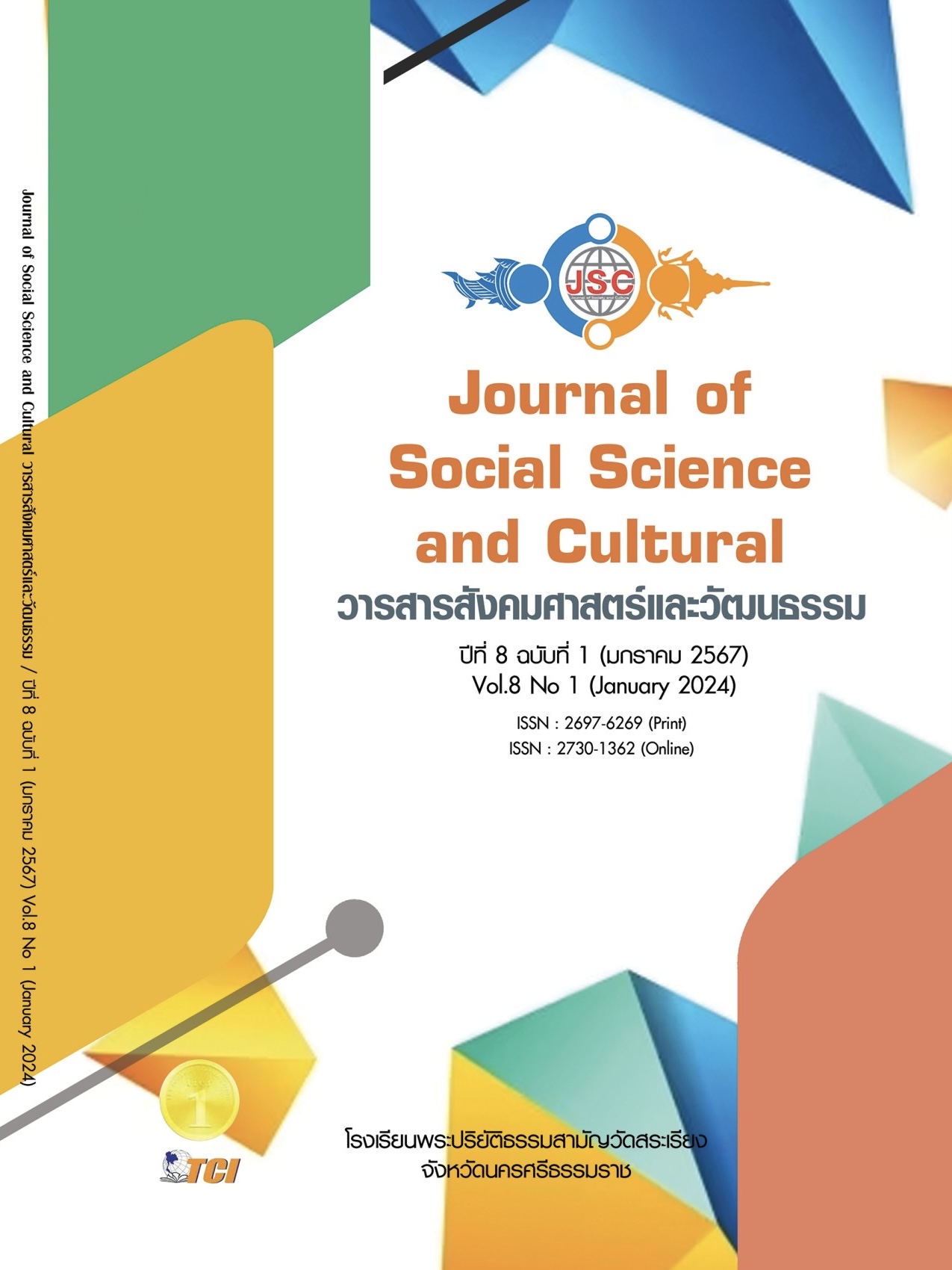ANALYZING THE PATH OF RELIGIOUS RECONCILIATION IN PAKISTAN
Main Article Content
Abstract
This research article is a qualitative research article. The objectives are: 1. To research the causes of religious conflict in Pakistan through the study of historical data. 2. To research the possible paths of religious reconciliation in Pakistan from the causes of religious conflict. Islam in Pakistan continues to face threats from sectarian fighting. Religious and other sectarian extremism has had a serious impact on Pakistan's political and social stability. This is a qualitative research study based on document research. It is based on analysis and research of documents regarding Pakistan's religion, politics and forms of terrorism. Evolutionary development of Islam and the history of the Indian subcontinent to summarize the religious background of Pakistan. and the religious conflicts they face and aimed at finding ways to reconcile. The research results found that from the religious history of three important periods of the Mughal Empire. British India and the establishment of Pakistan. The struggle between Sunni and Shiite continues to be a key issue in Pakistan's sectarian struggle. It is also influenced by fundamentalist and collectivist Islam. Islam in Pakistan has become increasingly extremist. Later development and religious extremism have morphed into terrorism. It has become a major threat to peace. political stability and society of Pakistan to this day. Guidelines for building religious harmony are critical to Pakistan's security. In order to achieve religious harmony in Pakistan three aspects can be considered: historical integration at the national level; Understanding sects at the religious level and intellectual integration at the national level.
Article Details
References
Adams, C. J. . (1966). “The Ideology of Mawlana Mawdudi.” Pp. 371–97 in South Asian Politics and Religion. Princeton: Princeton University Press.
Ayesha, J. (2008). Partisans of Allah: Jihad in South Asia. Cambridge, Mass: Harvard University Press.
Barbara, D.M. . (1982). Islam and Custom in Nineteenth-Century India: The Reformist Standard of Maulana Thanawi's" Bihishti Zewar". Journal of Developing Societies, 17(1982), 62-78.
Ding, S. (1987). The Proposition and Formation of the "War Communism" Policy - Introduction to "The Complete Works of Lenin" Chinese Second Edition. Teaching and Research, 38(4), 35-37.
Mei, L. & Gu, L. (2012). Research on Islamic Issues in Contemporary Pakistan. Journal of Xuzhou Normal University: Philosophy and Social. Sciences Edition, 38(3), 56-63.
Shi, J. (2020). National System Political System Identity. In Doctoral dissertation. Jilin University.
Wang, S. (2012). Analysis of the relationship between tribal identity and national identity in Pakistan’s tribal areas. Journal of Harbin Engineering University, 33(6), 42-47.
Yang, Y. (2023). The problem of sectarianism in Pakistan: Evolution, conflict and motivation. South Asian Studies Quarterly, 3(2),135-155+160.
Zhang, J. & Han, L. (2017). The situation and development trends of extremism in Pakistan. International Observation, 8(4), 102-116.
Zhiping, L. (2002). Pakistan and Islam. Asia-Africa Perspectives, 6(3), 12-17.


